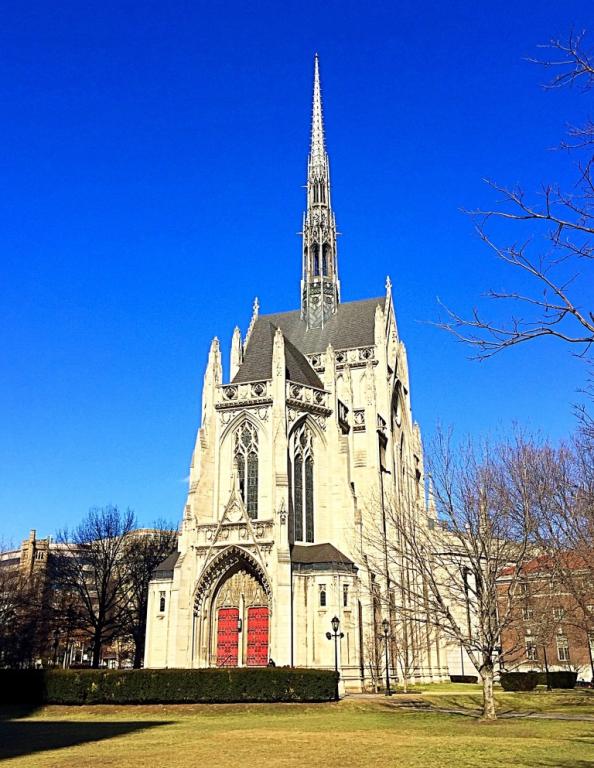 It was a Donegal year.
It was a Donegal year.
Before 1972 I’m sure that I never heard the name, but before the year was out, I had seen a Donegal in Pennsylvania, and another on the western coast of Ireland. Very different places, but the first an echo of the second, clearly a way for the Irish immigrants who made their way to Penn’s woods to remember who they were and where they had come from.
That summer I lived in Pittsburgh, my first ever try at “summer” away from the West. It was new, and I experienced a part of America that I had never really imagined very fully— the East, with its brick streets that ran up and down and rarely in a straight line, with its humidity and cloudy days, sometimes surprised by a bright, beautiful blue-sky with a sweet breeze.
Once as a young adolescent I came with my family to a family reunion in western Pennsylvania, but most of memories have to do with the funny things kids did there, like wear penny loafers with no socks and call ice cream “custard,” though we did see a Pirates game in the old Forbes Field, which was wonderful.
But that summer, young man that I was, on my own in a way that I had never been, I stepped into things that were more mine. The Ligonier Valley Study Center began that year, and most weeks I found a ride along the turnpike to the Donegal exit, driving hill-and-dale to Stahlstown to the old farm that Pittsburgh’s dowager duchess, Dora Hillman gave to the dream of a “L’Abri-like” place in America. For those not in the know, Ligonier was an almost magical place for Pittsburgh’s wealthy, a beautiful valley with beautiful farms graced by streams and hills at the edge of the Allegheny Mountains. Before the Mellon family discovered the Blue Ridge of Virginia, they had their second homes with grand “farms” in Ligonier, and their heirs still own some of the prettiest places in the valley.
On Monday nights the study center hosted a “gabfest,” a come-one, come-all conversation about anything and everything, a roomful of university students siting at the feet of R.C. Sproul, the golf-loving, cigarette-smoking young theologian who loved Jonathan Edwards. He had an uncanny ability to speak to people about complex ideas in ways that were remarkably passionate and understandable. I joined in, listening and learning.
A few years later, after traveling through Ireland’s Donegal, and living and learning in L’Abri itself, I came back to Pittsburgh and Donegal, week by week driving between the city and the country, apprenticing myself to the vision that ideas had legs, that theological commitments must have consequence for the way we live in the world. For two years I kept at that pedagogical rhythm, earning a master’s degree along the way.
The story is longer, but I will only say that some years later Meg and I with our young family returned to Pittsburgh, where I took up PhD studies, again learning to love the city with its wonderful tribal history of Scots and Irish, and Poles and Italians, and many, many more from the corners of the earth, who love being from the ‘Burgh, being the Steeler Nation of western Pennsylvania.
And now it is years later, with a lot of water under the bridges of life— the good and the bad, the graces and the heartaches, the glories and the tragedies that run through the years. No longer 20, wondering about the world and my place in it, I have followed the questions of my life, threads that they have been to my own deepest commitments, and they have taken me to many places with many people.
Yesterday, one more early morning of my life, I set out from Washington, driving to Donegal, and a day of conversation with two friends, Lisa Park Slayton and Rick Wellock, colleagues together at the Pittsburgh Leadership Foundation, an almost 40 year-old organization with an unusual vision for the city in all its multi-splendored glory and ruin. They offered to meet me “along the way,” and we chose Donegal for good reasons. I still love being there, rich as it is in so many memories to me. We spent the day talking about the city of Pittsburgh as a city, a place with a people. That is their work, and they hope that I will enter in with them, in some kind of honest way together working to see the recovery of a vision of vocation as integral to the flourishing of the city. What would that look like? How would we work together towards that end?
That we took this up in Donegal was important, the little place along the road that it is, a place that I have come in and out of for most of my life, inch-by-slow inch, year after year, understanding more of my own vocation, of who I am and what I do in this work of a public teacher with a classroom among many people in many places. This was clear to me yesterday, that wherever I go in the days and weeks of my life, in one sense I am still the young man that I was, eager to see what we believe about the world have meaning for the way we live in the world— for selves and for societies, and some days, like yesterday, for a city like Pittsburgh.
(For more on the Pittsburgh Leadership Foundation, their good work and ways I am connected to them, see here: http://plfblog.org/2015/06/2015-summer-reading-list/)
This post originally written for the Commons Blog from The Washington Institute for Faith, Vocation and Culture.











